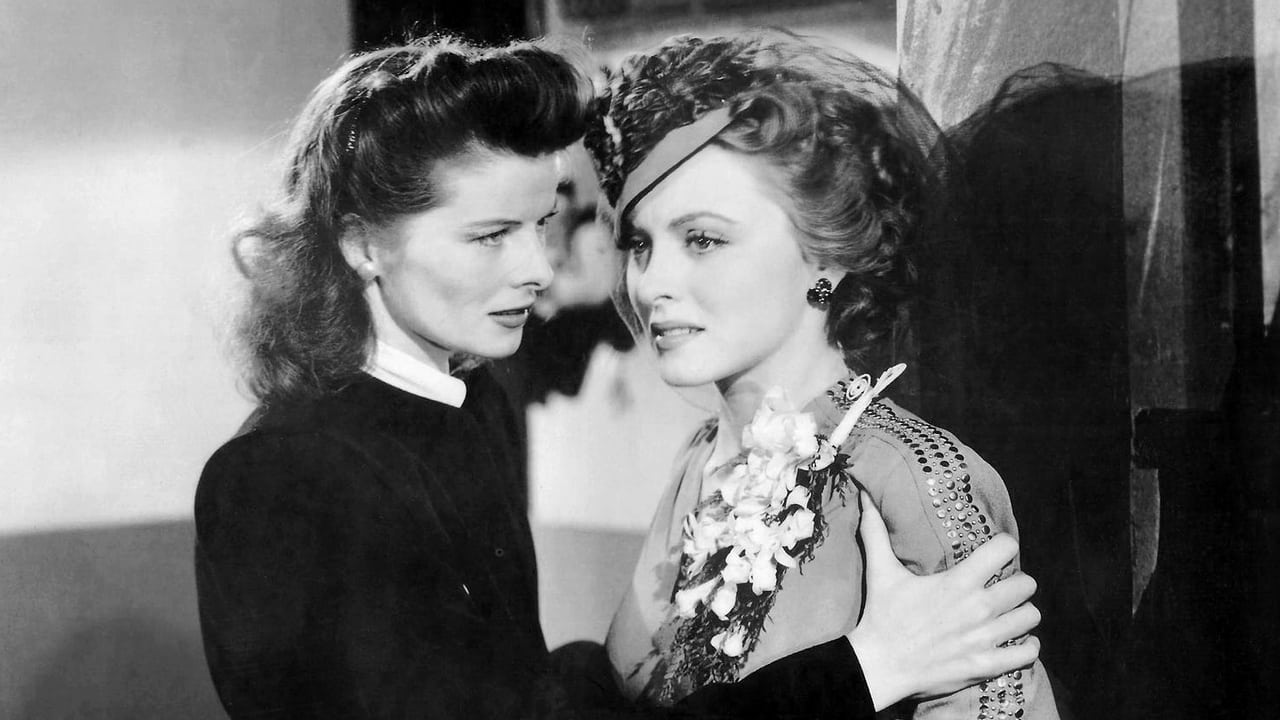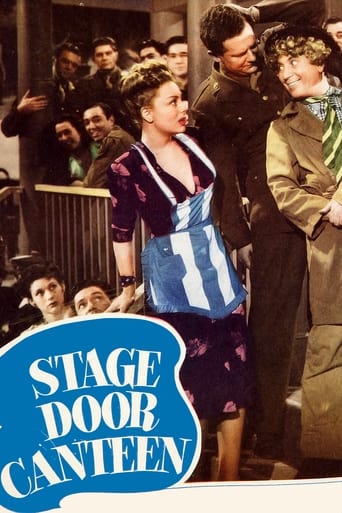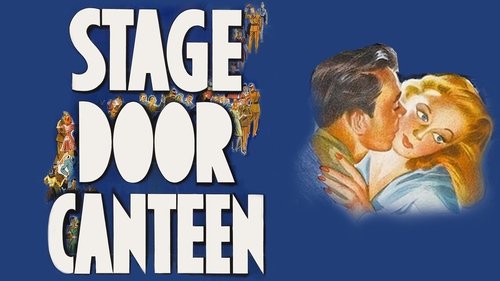


Littered with over twenty name stars, Stage Door Canteen was Hollywood's contribution to boosting the troops' morale in the thick of WWII. Everyone got together, playing themselves, and gave a song, dance, or speech at the Stage Door Canteen, for the soldiers in the movie as well as the soldiers in real life. Katharine Hepburn, Helen Hayes, Ethel Merman, Harpo Marx, Ray Bolger, Ralph Bellamy, Tallulah Bankhead, Jean Hersholt, Paul Muni, Merle Oberon, George Raft, Gypsy Rose Lee, Elsa Maxwell, Ethel Waters, Ed Wynn, Helen Broderick, Jane Darwell, Martha Scott, William Demarest, Allen Jenkinis, Sam Jaffe, Xavier Cugat, Benny Goodman, Kay Kyser, Guy Lombardo, and many others lent their name and talent to show American boys that Hollywood was behind them all the way.Sprinkled in among the countless acts is a fictional story of three soldiers, named Dakota, California, and Texas, to symbolize the average American soldier, who visit the variety show and fall in love with three girls who work there. Romance is strictly forbidden at the hotspot, but the three couples make plans for after the war anyway, inspiring thousands of war-torn couples across the nation.If you're able to get in the WWII mindset, or if you like Americana films, you might enjoy this one. If you just look at it as a regular movie, it's not that great. It's over two hours, and with a very simple story to carry you through dozens and dozens of acts by people you might not have even heard of, you might find it a little long in the tooth.
... View MoreAnother of the WW2 star rally movies where a bunch of movie stars get together in a single film to support the troops, each having minor parts and sometimes doing musical numbers or comedy skits. The main plot in these films usually features a romance involving one or two lesser known actors. Several of the studios did one of these during the war. The best, for my money, is Hollywood Canteen from Warner Bros. This one is one of the lesser efforts, but still enjoyable for classic film fans.Directed by Frank Borzage and released by United Artists, it tells the story of the title recreation center for servicemen in New York City and a romance between an aspiring actress (Cheryl Walker) and a soldier (William Terry). The bigger names giving support or doing cameos include Katharine Hepburn, Ethel Merman, Paul Muni, Merle Oberon, Johnny Weissmuller, Tallulah Bankhead, Ralph Bellamy, George Raft, Ray Bolger, Gypsy Rose Lee, Judith Anderson, Ed Wynn, Sam Jaffe, Franklin Pangborn, Alan Mowbray, and Edgar Bergen, among others. The stars vary in screen time and what they do. Some do bits, others just play themselves saying a line or two (usually a corny joke). The musical numbers are so-so and mostly feature popular bandleaders like Count Basie, Xavier Cougat, Kay Kyser, Benny Goodman and their respective bands. It's definitely worth a look for movie buffs but it goes on way too long for such a thin story and the music is nothing to get worked up over.
... View MoreWell-known performers and film stars entertain, serve food and drink to, and socialize with, young WWII soldiers and sailors, before these guys go off to war. The fictional plot follows three or four young servicemen in particular, and their encounters with attractive young females whose work at the canteen involves being the guys' romantic dates for a couple of hours.Most of the plot takes place at the canteen, a New York City nightclub with dance floor and stage. The atmosphere is intentionally lively and upbeat. For servicemen, it's a momentary escape both from the demands of military duty and the prospect of overseas battle. Yet there's an undercurrent of loneliness and separation, knowing that in war not everyone returns safely to friends and family. Owing to these melancholy and sad themes, I find the token plot more interesting than the appearance of celebrities.Some of the entertainers do nothing more than chitchat for a minute or so with the servicemen. Other entertainers perform on stage. And it is the selection of performers and their musical numbers that I found quite disappointing. Almost all of the selected songs and comedy routines were downright boring. Of course it was a different era then, so judgment needs to be tempered with a sense of historical perspective.B&W lighting is acceptable, but it would have been interesting to see this film in color. The sounds of the performing bands seemed tinny or thin to me; maybe it's just the era technology. Casting and acting are acceptable. The appearance of the celebrities could have been enhanced if they had been wearing name tags, or in some way could have been identified by name."Stage Door Canteen" is a lengthy film, which could have been rendered higher quality with less dialogue and far better stage entertainment. Yet, it's worth watching as a useful window into an era that is long gone, an era of some interesting performers, almost none of whom are with us anymore.
... View MoreThe main story is mile high corn about being swept away by emotion during wartime but the cast roll is amazing as are some of the performances. In particular Peggy Lee, saucy and sexy, Ethel Waters who's full of snap and Kay Kyser's band who swing the place. There are some personalities who don't perform but swoop in an add a touch of spice then saunter back out, Tallulah Bankhead being the best example. Some of the stars are a bit stiff but that's natural considering most of them where stars of the stage not screen. This does provide a document for some, Helen Menken for one, of their only on screen appearance for others, The Lunts, etc. a very rare one. The film offers a window into the diversity of popular entertainment during the war years-from jitterbugging to classical music. Some stars appearances are mere bits, Dame May Witty and Aline MacMahon. While others show some of their famed act that could never make it past the censors otherwise, Gypsy Rose Lee's performance is the best example of this. Then there are a few performers who became better known to the general public when they were older, Helen Hayes among them, who it is fascinating to see in their younger years. Mixed in with all the marvelous array of talent and entertainment are heavy doses of patriotic speeches which of course was the whole point of the film. Some are low-key and some like Merle Oberon's call to arms more heavy handed. The picture holds its big gun at least as far as star wattage goes, Kate Hepburn, until almost the conclusion of the film. She delivers a flag waving speech which even though it's a tad awkward she saves by the look she delivers at the end of it. At times a trifle graceless and ham-fisted this is still a very enjoyable movie with an utterly charming scene between Katharine Cornell and Lon McCallister where they perform an impromptu scene from Romeo and Juliet, the best of many highlights.
... View More